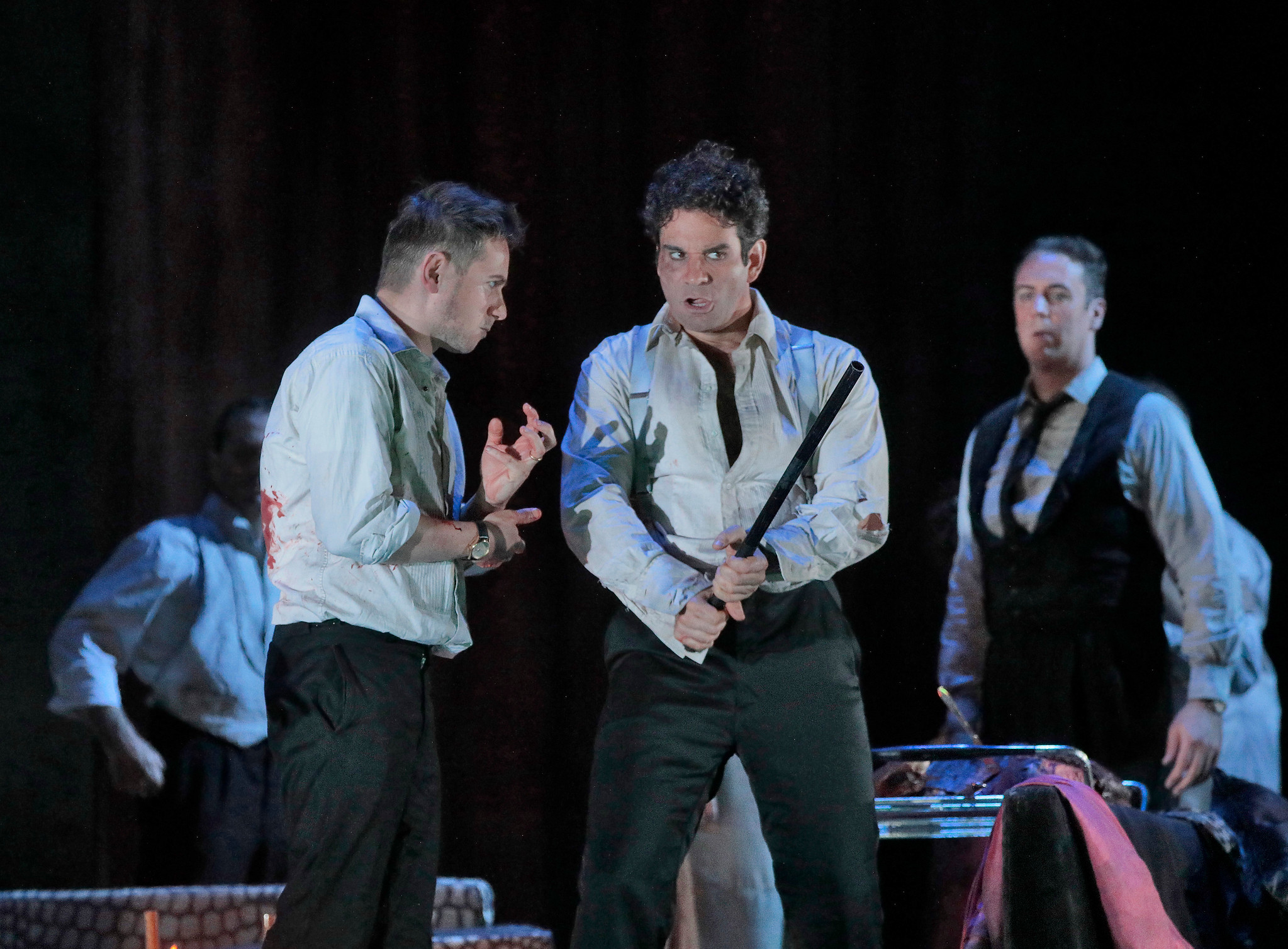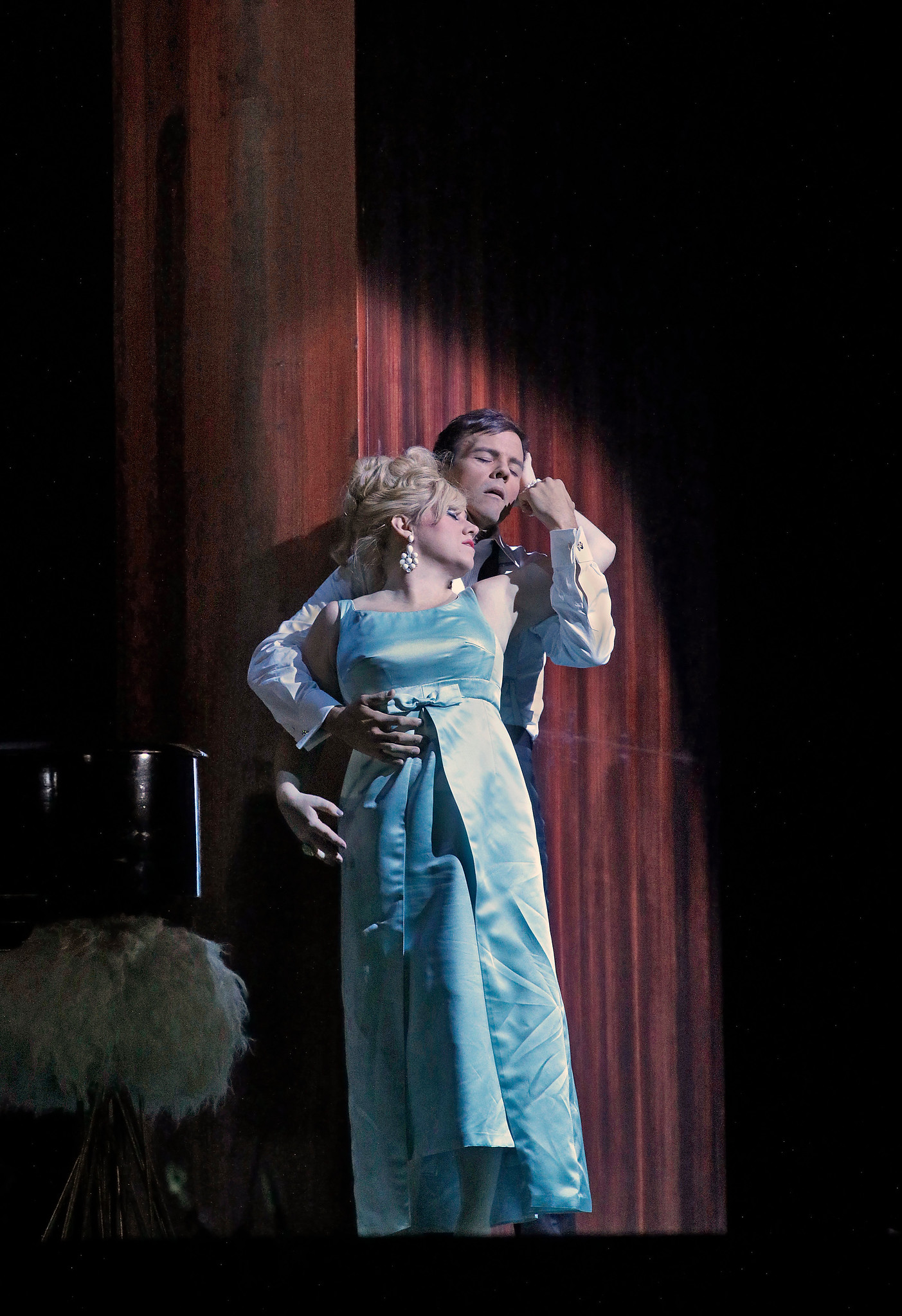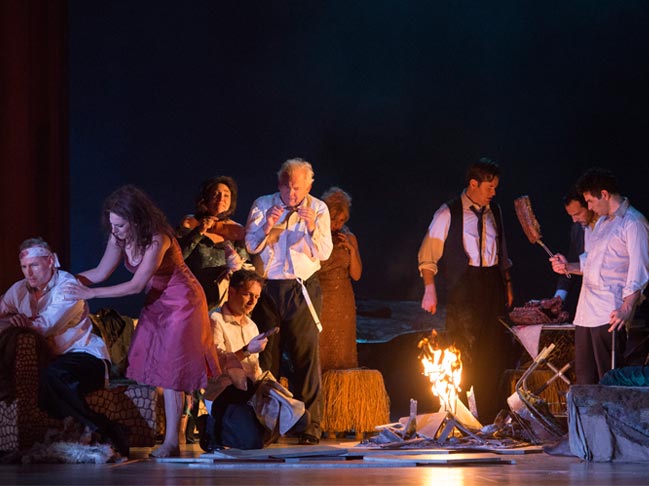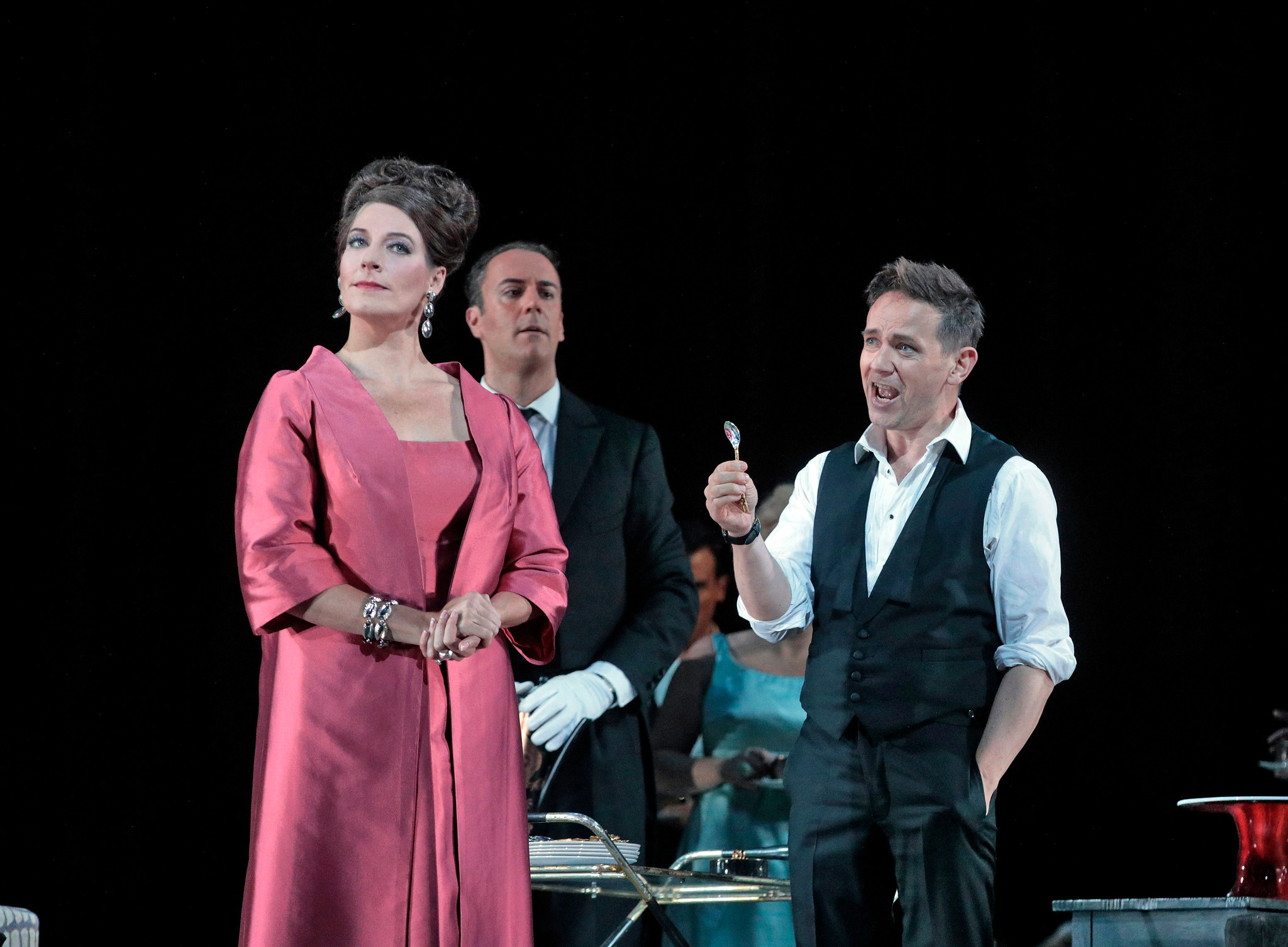Correction: The next showing of The Exterminating Angel in cinemas is November 29 (not November 22); the incorrect date listed in my previous post has been corrected. Note: this is an “Encore”, not "live" showing and many theaters will carry two showings that day.
I followed my own advice (posted here) on Saturday and attended the Metropolitan Opera’s The Exterminating Angel live in HD at Tysons AMC Theaters on Saturday. I like the opera and am glad I saw it. I can’t say I love the opera. But here is the thing - though modified, it follows the plot of an extraordinary film; so, the element of surprise is lost for the most part. In an interview during the intermission, composer Thomas Ades said the opera chose him, not the other way around, and we have to accept what our creative people have to offer us. I would recommend seeing the opera even if you have seen the movie. Here is what I like about the opera: the music, the character development, the cast, and the message.
Society manners and personas rule the beginning of the dinner party in The Exterminating Angel. Photo by Ken Howard; courtesy of the Metropolitan Opera.
The cast truly was an ensemble cast of 15 singers. No one stood out for me above many of the others. All were quite good. The singing was primarily the singers soaring up and down in their highest register to express their emotions, which I gather is not easy to do. There were only a few arias, but one was a rather lovely duet between the lovers in Act 2. The cast were also good actors, which is especially important for the cinema broadcast with its extensive use of close-ups. The focus on recitative or sung dialog allowed for a deeper level of character development than I find in most operas, and towards the end, I found myself starting to care about each of these stuffed shirts and the pain of having their souls bared. The music was modern and not often melodic enough to hum along with, but it was quite inventive in supporting the story and emotions being expressed. Kudos to Mr. Ades and Mr. Cairns.
A betrothed couple displaying their passion and a scene where dark sides are emerging in The Exterminating Angel. Photos by Ken Howard; courtesy of the Metropolitan Opera.
It’s not that I liked the message so much as I liked that the opera, like the film upon which it is based, forces us to take a look at ourselves as we really are beneath our personas. Early on, one of the characters complains that no coffee spoons have been set out; he says the breakfast spoons are too large for his coffee. Towards the end, the people are slaughtering sheep with whatever implements they can find and cooking the meat over an open flame. I think the world can be viewed as a dinner party where no one can leave. The opera and film force us to look into the face of our primal natures. One character toward the end says he would rather die than endure the degradation. Perhaps there is a better path than death or hiding of our real selves. I hope, perhaps optimistically, that this confrontation with ourselves moves us towards greater tolerance and love as the answer to our dilemma.
The need for the proper spoon and then more primitive dining in The Exterminating Angel. Photos by Ken Howard; courtesy of the Metropolitan Opera.
Personally, I am somewhat disappointed in the Met’s 2017-2018 season; in close to thirty offerings, this is the only new opera. The Met is producing some good things this year in what they are doing with old operas and the quality of singers they can present. However, I feel they could be doing so much better for opera and their audiences. However, in The Exterminating Angel, the Met done good.
The Fan Experience: I bought my tickets online using Fandango; this adds two dollars to the cost, but I get to skip the lines at the box office. I love it that I can dress casually and take refreshments into the theater for opera. Bear in mind that movie etiquette applies, so you may have folks squeezing by you to get seated after the opera begins and enjoying their soda and popcorn after it starts; mine was a very polite crowd. Also, when Act 1 ends, stay seated a few more minutes and take advantage of the interviews with the cast and composer, an advantage of the cinema broadcasts. You will then be given an intermission without commentary to take your bathroom break or make your soda run. Also-x2, the opera is in English, but subtitles are also shown.
What I don’t like about the cinema broadcasts: not being able to see the whole stage and the quality of the sound compared to being there in person. Even with the good quality sound in cinemas today, it is no match for live sound directly to your ears. If you can make the live production in NYC, do that.





